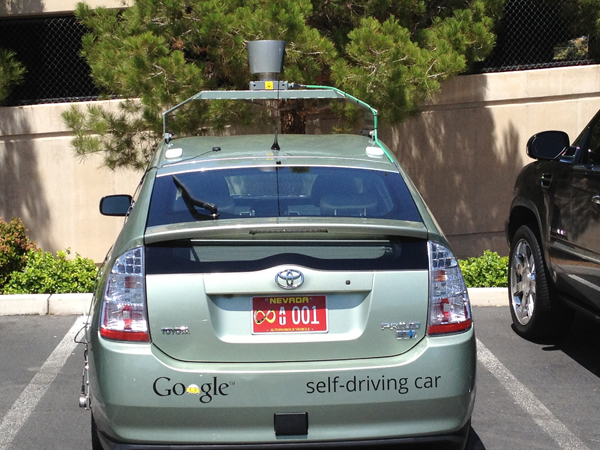Driverless Cars To Join British Roads Next Year

The AA thinks few motorists will be interested when driverless cars are allowed on public roads from next year
The government is to allow driverless cars onto Britain’s crowded road network from next year – but motoring organisation the AA thinks it will only appeal to a tiny minority of drivers.
The move comes despite concerns that driverless cars could be hacked and turned into lethal weapons, and in the face of a survey from the AA which suggests the driving public will take a lot of convincing before they let a driverless car take them anywhere.
Driverless Cars
Business Secretary Vince Cable is expected to announce today new rules that will allow organisations to start testng driverless cars on British roads. It follows similar moves in the United States, Germany, Japan and Singapore.
But before driverless cars begin appearing on British roads, the government will need to change the Highway Code, as these types of vehicles are currently only permitted on private roads in the UK.
The government is concerned that the UK could be falling behind other countries in developing the technology. Researchers in Oxford are known to have developed an autonomous car that can be controlled using an iPad, and the British army is also testing driverless vehicles in conjunction with automotive engineering specialist MIRA.
Milton Keynes could be the first location in the UK where driverless cars become a common sight. In June, Cable opened a £150 million government-sponsored centre in Milton Keynes to develop driverless cars and improve the country’s transport networks across air, land and sea.
Look Mum, No Hands
A number of companies are currently developing driverless car prototypes. This includes Volvo in Sweden, but the best known work is being done by tech giant Google.
 Google has been experimenting with driverless cars for years in the United States, but the previous prototypes have been based on the Toyota Prius, as well as models from Audi and Lexus.
Google has been experimenting with driverless cars for years in the United States, but the previous prototypes have been based on the Toyota Prius, as well as models from Audi and Lexus.
Yet in May Google signalled it could be prepared to take on the likes of Ford and co, with the news that it will build its own self-driving cars, instead of customising models from other vehicle manufacturers.
That recently announced Google car is different from other efforts, as it is a ‘hands-free’ prototype vehicle with no steering wheel, brake, or accelerator pedals, but it does have a stop and go button.
Wary Motorists
Motoring organisations have yet to warm to the idea of self-driving cars.
The AA told TechweekEurope that it believes British car drivers will view driverless cars with a degree of scepticism, as they still want to drive their own vehicles.
“Today’s announcement takes us closer to seeing fully autonomous vehicles on our roads but it will take some time for them to become commonplace,” said Edmund King, AA president in a emailed statement to TechweekEurope. “Many drivers are still resistant to change as 65 percent enjoy driving too much to ever want the vehicle to take over from them.”
“Cars have become more automated with the introduction of assistance systems to aid parking; help keep a safe distance from the car in front; warn of unsafe lane ‘departure’ and even autonomous emergency braking to prevent crashes,” King added. “However, there needs to be a big leap of faith by drivers from embracing assistance systems to accepting the fully automated car.”
“The fact that advanced technology could enhance the mobility of an ageing population adds a certain appeal to older drivers if it will keep them driving longer,” he added. “Technology is not a prison. We must embrace technology as ultimately it will make our cars safer.”
An AA Populus survey found that only around one in 10 (12 percent) of 23,450 AA members said they can’t wait to take their hands off the wheel of a driverless car, but that sentiment rises to 16 percent for drivers in the 25-34 age group and 15 percent among 18-24 year olds.
All of this comes after security concerns about large numbers of driverless cars on public roads.
The FBI recently warned for example that driverless cars could be turned into lethal weapons, especially if hackers or terrorists were able to gain control of the vehicles.
What do you know about tech in transport? Take our quiz!